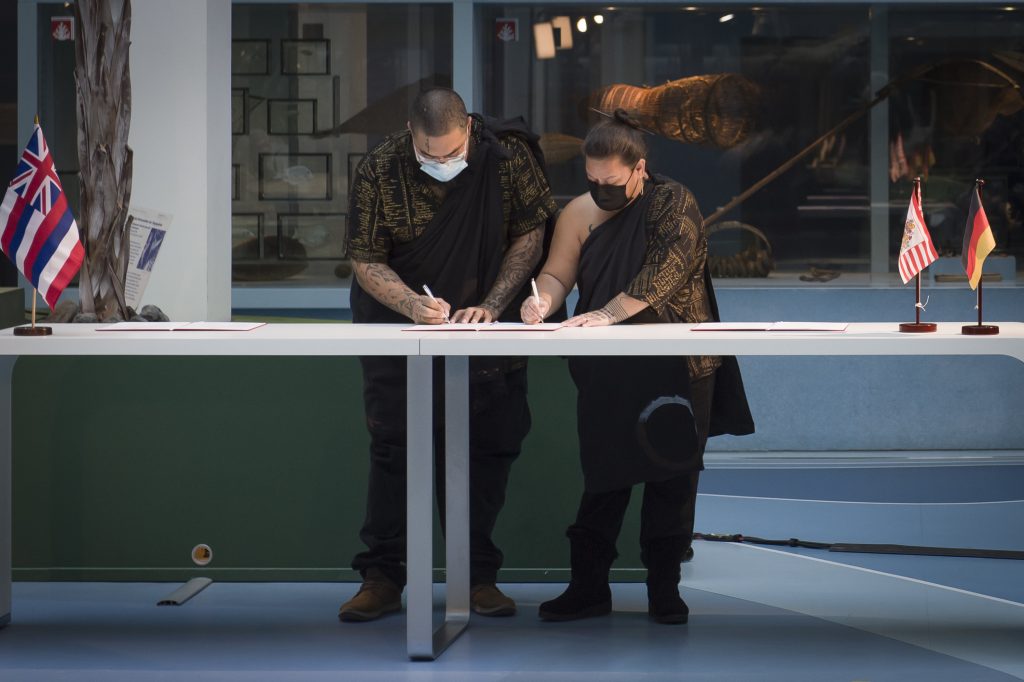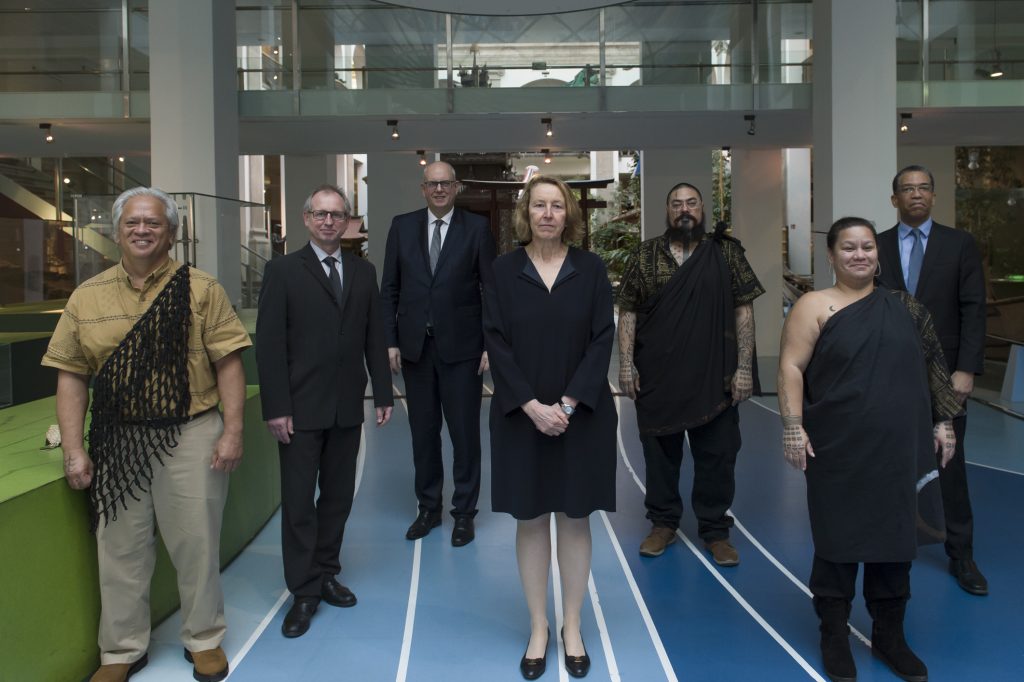58 ancestral Hawaiian skeletal remains stolen 100 years ago are coming home
More than 100 years ago, many ancestral Hawaiian skeletal remains were stolen during a time of colonial violence and taken to Europe, where the remains were horrendously dehumanized for study and display without their families’ consent.
This week, a delegation representing the Office of Hawaiian Affairs (OHA) will repatriate 58 remains from four institutions in Germany and one in Austria.
The repatriation of the iwi kūpuna is the culmination of many years of research, coordination and communications between OHA and European museum, anthropologic and academic institutions.
These iwi kūpuna were collected from Kaua‘i, Molokaʻi, Maui and Hawai‘i Island. The return of the remains to their homeland allows for healing and restoration of dignity, so they may finally rest peacefully.
“There has been much change in the last decade amongst museum professionals and anthropological scholars that demonstrates a better understanding of Indigenous peoples and the past injustices committed against us,” said OHA Board Chair Carmen “Hulu” Lindsey. “We certainly acknowledge this and applaud the rehumanization of these individuals and institutions. Today, these actions allow us to heal, not only as individuals, but as a lāhui (Hawaiian nation).”
The repatriations began today, when the OHA delegation received eight iwi po‘o (skulls) from Übersee Museum at a “handover ceremony.” On each of the subsequent days, the delegation will prepare for the return home of 13 iwi from the University of Götttingen, three iwi poʻo from Friedrich Schiller University Jena and 32 iwi from SPK — Berlin State Museums of the Prussian Cultural Heritage Foundation. The final repatriation from the Vienna Natural History Museum of two iwi poʻo will happen on Feb. 14.
“For ethical reasons, there is no longer any justification for continuing to keep the human remains in our collection,” said Prof. Dr. Wiebke Ahrndt, director of the Übersee-Museum Bremen. “As a general rule, we would never entertain such sensitive purchases of unknown origin now. We bear the responsibility for the mistakes of our predecessors. Our task is to play our part in righting the wrongs of the past.”
Research uncovered that the eight human remains that made their way to the Ubersee-Museum came from different routes. Two were left to the museum by Kurt-Felix (or Kurd-Felix) Franke in 1934 and Hermann von Eelking in 1865. Two more ancestral remains were handed over to the museum by Prof. Hugo Schauinsland, Founding Director of the Übersee-Museum, most likely in 1897. No information is available on the other remains.
Four of the remains are believed to have come from Kauaʻi and one from Molokaʻi. The others are not known, although two are possibly from the Big Island.
Ahrndt also served as the chair of the German Museums Association working group that cited the need to return collections from colonial contexts, especially human remains, to the countries and communities of origin.
Edward Halealoha Ayau is a member of the Hawaiian delegation. He has led efforts to advocate for and repatriate iwi kūpuna, moepū (funerary possessions) and mea kapu (sacred objects) over the past 32 years.
Ayau served as the executive director of Hui Mālama I Nā Kūpuna O Hawai‘i Nei (Group Caring for the Ancestors of Hawai‘i) until 2015, when they formally dissolved. He now serves as a volunteer for OHA, leading the international iwi kūpuna repatriation efforts. Cultural practitioners Mana Caceres and Kalehua Caceres also are a part of the delegation ensuring the safe return of the iwi kūpuna to Hawaiʻi.
“We acknowledge the anguish experienced by our ancestors, and take responsibility for their wellbeing (and thereby our own), by transporting them home for reburial,” Ayau said. “In doing this important work, we also acknowledge and celebrate our respective humanity – Germans and Hawaiians together in aloha – as we write a new chapter in our historic relationship as human beings.”
OHAʻs policy is to protect and promote the reverence and cultural importance of proper care, management and protection of iwi kūpuna. OHA has been involved in 120 repatriation cases over the past 30 years.
In its Mana i Mauli Ola Strategic Plan 2020–2035, OHA aims to empower communities to take care of iwi kūpuna.
Locally, OHA supported this initiative in 2021 with its new Iwi Kūpuna Repatriation and Reinterment Grants, providing $167,298 to four community organizations. Nearly $33,000 will go toward facilitating the reburial of 700 to 900 iwi kūpuna and moepū disturbed at Kawaiahaʻo Church grounds. The remaining iwi kūpuna grants will provide education in communities throughout the state to empower Native Hawaiians to protect and care for iwi and provide training on the proper treatment of iwi.












_1768613517521.webp)



